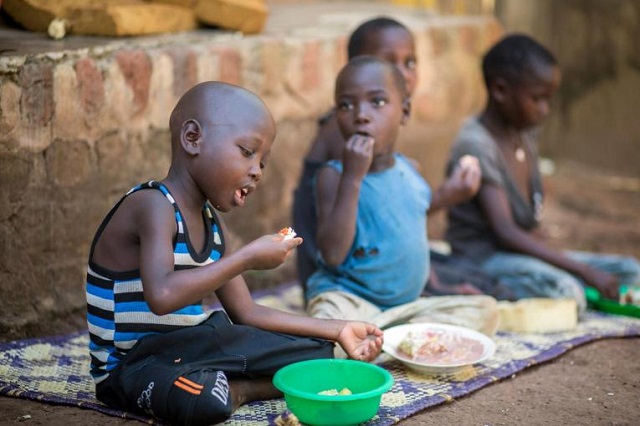
A group of mothers in Otuke district have discovered an easy- cost-effective method of treating malnutrition in children. The women make their composite flour by mixing different flours from fruits like pawpaw and oranges, and crops such as maize, millet, soya beans, cassava and orange- flesh sweet potatoes, and silverfish. The mixture is then fed to the children in the form of porridge.
Otuke is one of the districts in Northern Uganda with acute malnutrition levels. It has been classified as an “Alert” district for acute malnutrition, meaning more than 1 in 20 children in the area are affected. The major factors contributing to acute malnutrition include inadequate quality and quantity of food, food insecurity, poor hygiene practices, and high rates of malaria.

In Aweayela parish in the Alango sub-county, there are three children with cases of malnutrition. The children are currently being treated with the homemade remedy. Christine Awino, a resident of the area lived with her daughter for over 8 months without the knowledge that her child was malnourished although she was abnormally small.
It took the intervention of a Village Health Team member to diagnose the child with malnutrition and introduce the mother to the group. Awino says her child’s condition has greatly improved after feeding her the mixture. Henry Olap, the chairperson of VHTs in Aweayela parish explained that the composite flour has been the best remedy to malnutrition in his area.
Jackline Namusalisi, the Technical Coordinator for nutrition-sensitive agriculture at Sasakawa Africa Association (SAA) explained that the organization has been working with families with malnourished children and expectant women to grow bio-fortified foods which is essential for their health. Sasakawa has identified a home where mothers who cannot on their own make composite flours for their malnourished children can buy. The same home acts as a referral to the health facility in case of an emergency.
Margaret Akullo, who owns a model home in Otuke district is reaping big from the sale of composite flour which is made and sold to mothers with malnourished children. Her home is dotted with vegetables and fruits including watermelon. Statistics show that stunting in children under five reduced by 10 percent from 29 percent in 2016 to 26 percent in 2022, and there was a 27.
5% decline in wasting among children under five from 4% in 2016 to 2.9% in 2022. **** URN.














